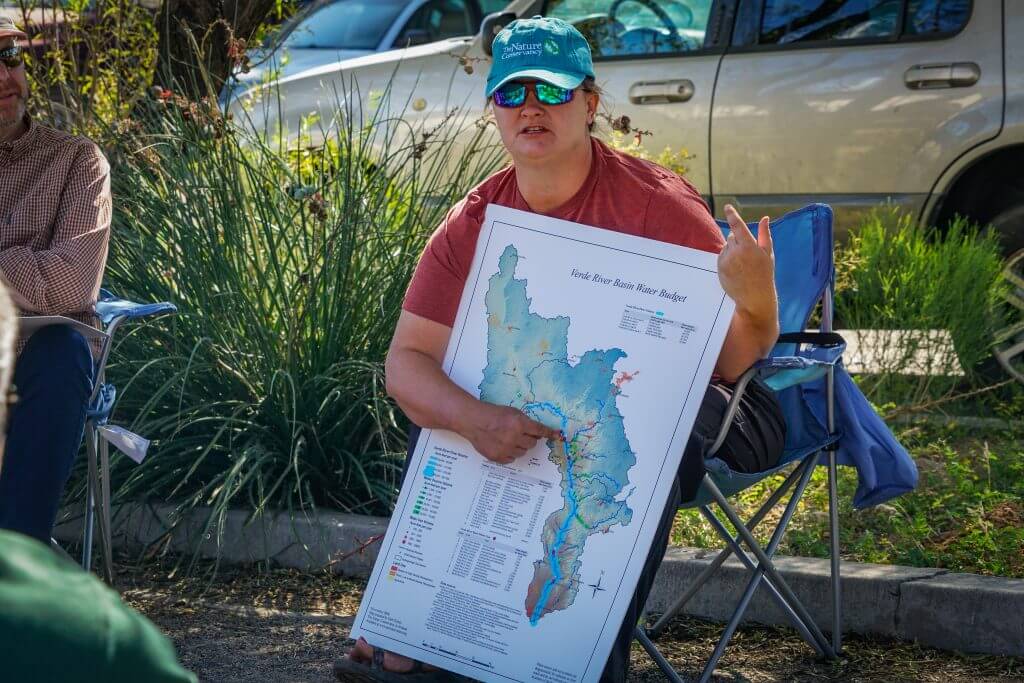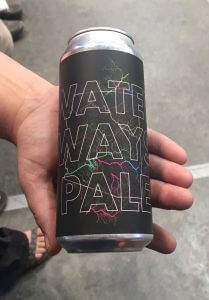Empowering Environmental Water Transactions Across the Network
In October 2019, River Network convened our fourth annual Environmental Water Transactions Network gathering in Flagstaff, Arizona. Though we are neither an expert on environmental water transactions (EWTs), nor do we implement them, this annual meeting is an opportunity to flex our expertise in bringing together practitioners to share learning and leveraging the “power of our network” to empower collective action. Our staff of skilled facilitators and trainers has a deep background in clean and ample water issues, and so can help identify where groups are stuck or what lessons can be found in their successes, to move the field of practice forward.
This is my favorite conference. The content is consistently very well targeted to the work I do (even though I’m doing fewer actual “transactions” lately). Hearing about others’ work in different places is always helpful and inspiring and provokes new ideas, even on topics that aren’t directly analogous. And connecting with the group helps provide a sense of collegiality and continuity, re-energizing me to keep working on Colorado River water issues, and helping me to feel like I’m a part of a larger and meaningful effort across time and space.”
– Jocelyn Gibbon, Freshwater Policy Consulting
EWTs are, put simply, an incentive-based agreement (usually, but not always, financial in nature) between a water user and another party to make water available for some other purpose. In Western states where water use is typically governed by the Prior Appropriation Doctrine, and use of water is a commodity that can be bought and sold, EWTs can be used to protect or enhance river flows.

Kim Schonek of The Nature Conservancy. Photo by Sinjin Eberle/American Rivers.
River Network members like Friends of the Verde River and the Arizona Land and Water Trust have partnered with national organizations such as The Nature Conservancy, Trout Unlimited, and the Environmental Defense Fund for over a decade to turn the idea of EWTs into a reality that can be replicated at scale. Successful implementation requires strong trust with local water users, a supportive state policy framework, and sustained funding to pay for water and infrastructure improvements.
An individual EWT can take years to go from concept to agreement, and is often implemented over a long timeframe. Shifts at the state and federal level can dramatically improve or tank a project’s chances in that timeframe. Most recently, the agreement between the Colorado River Basin states and the US Bureau of Reclamation to explore demand management has created an urgency around developing state-level rules and policies, as well as to deploy on-the-ground examples of how it can work.
Another recent shift is increased engagement by the Colorado River Ten Tribes Partnership. The Tribes have combined annual water rights of about 20% of the Colorado River mainstem’s flow, plus additional unresolved claims. Although many of the Partnership Tribes do not currently use all their reserved water rights, that water does not go unused. Full development of Tribal water rights will widen the future gap of projected water supplies and demands throughout the basin. Their Colorado River Basin Tribal Water Study documents how Partnership Tribes currently use their water, projects how future water development could occur, and describes the potential effects on the Colorado River System. As EWTs seek to protect and restore flows, Tribal water use will be an important factor.
While each EWT is unique to the water management and ecological needs of a specific river, practitioners tend to encounter the same roadblocks. River Network’s annual EWT gathering is a key way for these practitioners to convene. Without our work, and the funding support of the Walton Family Foundation, EWT practitioners wouldn’t have an opportunity to swap lessons, explore roadblocks, and feel like a part of a larger community.

Arizona Wilderness Brewing Co.’s WaterWays Pale, made with malt from Sinagua Malt. River Network staff photo.
Plus, we know how to make learning fun! Our time in Flagstaff last fall included a full day of field trips, from visiting a barley malting facility (and subsequently tasting the local brews) to exploring irrigation projects on the Verde River. Previous years have included time on the river together to remember why we do the work we do.
As the landscape continues to evolve, and EWT projects make progress, River Network will continue to provide practitioners with a space to learn from each other. Planning for the next gathering is in the works, currently slated for fall 2020.
River Rally 2020 this coming May in San Antonio, Texas, will also feature several relevant workshops on working with private land and water rights owners to enact conservation strategies, including the Texas Water Trade, US Water Alliance, Trout Unlimited, and Colorado Cattlemen’s Ag Water NetWORK.






[…] TU, and the many others working in this space, some as part of other programs we offer, like the Environmental Water Transactions Network, and generous funders like the Walton Family Foundation and Colorado Water Conservation Board who […]